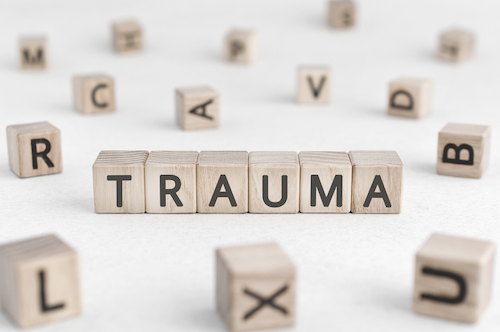5 Tips For Healing From Divorce Trauma

It’s no secret that divorce can top the list of traumatic life experiences, but let’s examine why that’s the case. In simplest terms, “ divorce trauma” is a constellation of mental health symptoms that occur when your connection to your primary attachment figure – your spouse – is severed. Along with that severance, other connections and relationships may be fractured or altered beyond recognition. You may lose your station in life, contact with in-laws and “married friends,” and in extreme cases, your own children. All these losses can make you feel isolated and hopeless.
Common signs of divorce trauma include:
- Depression and anxiety
- Sleep disturbance (interrupted sleep, nightmares)
- Hypervigilance
- Emotional reactivity
- Social withdrawal
- Feeling detached from one’s surroundings
If you’ve recognized any of these symptoms as ones you’re experiencing, that’s a good sign! It means that you’ve identified the problem and can now focus on the solution. The following tips are designed to help you heal from divorce trauma.
How to heal from divorce trauma
Find appropriate trauma providers. Not every therapist is trained to treat trauma. When searching for a mental health professional, ask them if they’re trauma-informed or if they’re trained in modalities that specifically target trauma, such as EMDR, Somatic Experiencing, or Integrative Body Psychotherapy. These therapies are developed to help your nervous system process trauma and build resilience so you are not endlessly re-living your painful past.
Practice self-care. In order to heal from trauma, you must meet basic self-care milestones: adequate sleep, proper nutrition, exercise, and attending to any medical or dental issues. If you’re having trouble sleeping or feel too overwhelmed to eat, consider seeing a psychiatrist for a trial of psychotropic medication that will help your body return to its prior level of functioning.
Build internal resources. You can learn to regulate your nervous system by developing “internal resources” that lead to a felt sense of safety in the body. Coping tools such as diaphragmatic breathing, grounding exercises, meditation, walking, aromatherapy, and crafting can help you calm down and focus on the present instead of past events, or future fears.breathing
Identify external sources of safety. Has divorce trauma made you lose trust in others? If so, it’s natural that you’d want to put walls up in order to protect yourself, but social withdrawal will just make you feel more vulnerable and alone. Put together a “team” of trusted support figures that you can talk to, or simply call to mind, when your emotions are all over the place. [To connect with others going through divorce, consider joining our private divorce support Facebook Group.]
Set emotional boundaries. Talking and thinking about your divorce 24/7 will re-traumatize you and keep your nervous system on high alert – or numbed out in order to escape. Think of building an invisible protective shield around you by setting emotional boundaries. Don’t do anything divorce-related after 8 pm, so you can settle down and get a good night’s sleep. Don’t spend an entire weekend doing a deep dive into narcissism; get out in nature, play games with your kids, or do a creative activity. Have items in your home that soothe the senses: flowers, a white noise machine, an essential oil diffuser.
Finally, do your best to psychologically disengage from your ex. Firing off angry emails, succumbing to knee-jerk emotional responses, or just ruminating about all the ways they’ve wronged you will keep your nervous system in overdrive.
The less you react to your former spouse, the more energy you will have to focus on divorce trauma recovery.
Divorce Coffee House is your community in divorce! You don’t need to go through the divorce process alone. Ask a Divorce Question or Join us on Facebook to get instantly connected.